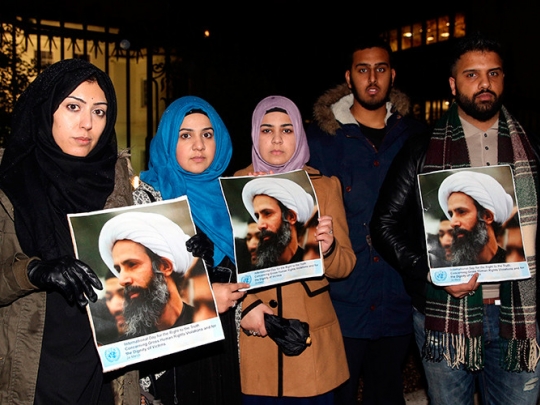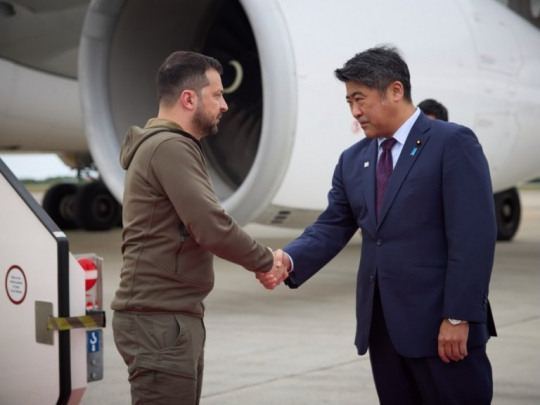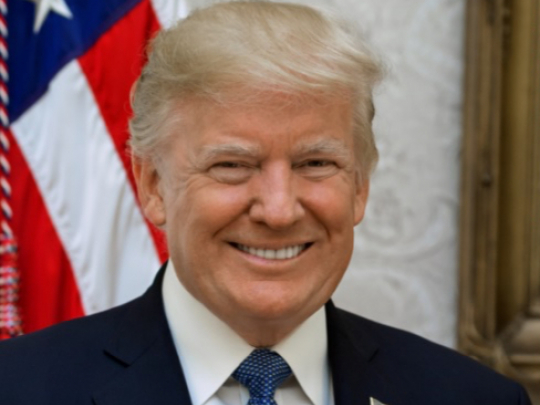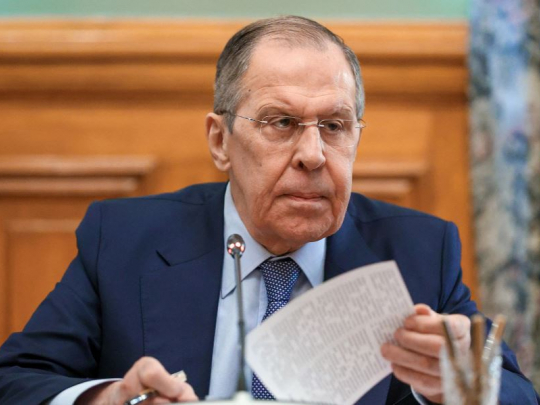Saudi Execution Aimed at Provoking Regional Bloodbath

The furious reaction across the Middle East to the Saudi execution of a prominent Shiite cleric strongly suggests that the killing is a deliberate provocation by the ruling House of Saud.
That provocation would appear to be aimed at inflaming sectarian tensions and fomenting conflict in various regional countries – already near flashpoint – in order to further Saudi geopolitical interests. Central to those interests is, as always, the bitter rivalry with the region’s Shiite powerhouse, Iran.
Following the announcement at the weekend by the Saudi Interior Ministry that Shiite cleric Sheikh Nimr al-Nimr had been executed, along with 46 other prisoners, there was predictable outrage from across the region, especially among countries where there is a large Shiite following, such as Iran, Iraq, Lebanon and Bahrain. Iran denounced the radical Sunni Saudi rulers as “criminal” and accused them of carrying out an act that is “the depth of imprudence and irresponsibility.”
Iran’s Supreme Leader, Ayatollah Khamenei, compared the House of Saud with Daesh, the extremist terror group (also known as Islamic State, and previously ISIS/ISIL). Of note is the way that the kingdom executes opponents by beheading according to a similar stringent interpretation of Islamic Sharia law known as Wahhabism – shared by both the Saudi regime and the cadres of Daesh.
Former Iraqi Prime Minster Nouri al-Maliki said that the imposition of capital punishment would lead to the downfall of the Saudi rulers, with other Iraqi politicians saying that it would “open the gates of hell” across the volatile and religiously fraught region.
The United States and European Union also responded with alarm at the execution of al-Nimr, both warning of deepening sectarian tensions being exacerbated by the Saudi death penalty.
Sheikh al-Nimr was executed on Saturday, along with 46 other prisoners in what is believed to have been the biggest mass execution in Saudi Arabia for over three decades. The death sentences were carried out in 12 prison locations by decapitation or firing squad, according to reports. Most of those sentenced were alleged members of the Al-Qaeda terror group, who had been accused of carrying out deadly attacks against Western interests in Saudi Arabia between 2003 and 2006.
Nimr al-Nimr was among four Shiite activists who were executed at the weekend. They were convicted on several charges of subversion and terrorism in trials that were dismissed by international rights groups as a travesty of judicial process. Sheikh al-Nimr was arrested in 2012 and accused of inciting violent protests, but supporters point out that the respected cleric always publicly endorsed peaceful protest. One of his best-known statements was: “The power of the word is mightier than the roar of bullets.”
In October, al-Nimr lost a judicial appeal against his death sentence. There then followed several international appeals for clemency. The Iranian government in particular issued several statements calling for the cleric’s life to be spared.
The widely seen miscarriage of justice against al-Nimr and the chilling determination to carry out his execution in spite of appeals for clemency is what makes the case so incendiary.
Lebanese Shiite resistance movement Hezbollah condemned Saudi Arabia’s conduct as “an assassination,” while Iran’s Revolutionary Guards Corps vowed that the Saudi rulers would meet with “harsh vengeance.”
In Yemen, where Saudi Arabia and a coalition of other Sunni Arab states have been carrying out airstrikes for the past nine months, the mainly Shiite Houthi rebels also condemned the execution of al-Nimr and promised retribution for his death. At the weekend, it was reported that 24 Saudi troops were killed in a Houthi rocket attack on the Saudi border province of Jizan. It is not clear if the attack preceded the announced execution of al-Nimr.
The Saudi regime has previously accused Iran and Hezbollah of fueling the Houthi rebellion in Yemen. Tehran has rejected claims of militarily supporting the insurgents. But it would be a fair assumption that Iran and Hezbollah will henceforth step up military intervention in Yemen as a way of striking back at the Saudis.
The same response is envisaged for Iranian and Hezbollah involvement in Syria, where the Saudis have bankrolled and armed various anti-government militia, primarily so-called radical Islamist groups with a shared Wahhabi fundamentalist ideology. These groups include Jaish al Islam (Army of Islam), whose leader Zahran Alloush was killed in a Syrian airstrike near Damascus on December 25. The Saudi regime publicly rebuked the killing of Alloush, saying that it jeopardized the forthcoming UN-sponsored peace talks in Geneva on Syria.
The House of Saud, led by King Salman, is known to be not in favor of the Geneva talks, which Washington and Moscow have both endorsed. The Saudis are dismayed by the seeming compromise made by Washington towards the Russian position, which is that the political future of Syria must be decided by the Syrian people through elections. The erstwhile demand by Washington that Syria’s President Bashar Assad must stand down as a precondition for peace talks has been abandoned – leaving the Saudis, Turkey and the extremist militia groups in Syria as the only parties persisting with the call for Assad to go.
It is perhaps significant that Turkish President Recep Tayyip Erdogan held a “strategic summit” with Saudi King Salman in Riyadh only days before the execution of Nimr al-Nimr.
Russia’s military intervention in Syria, from the end of September, has been a resounding success in terms of stabilizing the Syrian government of Bashar Assad. Even the Obama administration has recently acknowledged the strategic success for Russian President Vladimir Putin in Syria.
That military success can also be attributed to Iran and Hezbollah, as well as to Iraq, which have all contributed to the gains made by the Syrian Arab Army on the ground.
The biggest loser is the axis for covert regime change in Syria, led by Washington, London and Paris, together with their regional allies in Saudi Arabia, Qatar and Turkey. While Washington and the other Western powers have the nous to switch tactics from backing a covert insurgency to belatedly trying a political process for eventual regime change in Syria, it would appear that the Saudis and Turks are still committed to the covert war agenda
In that way, the Russian-backed military alliance in Syria is a particularly damaging broadside to Saudi Arabia and Turkey.
From the Saudi point of view, one way of trying to salvage their losses in Syria and ongoing setbacks in Yemen would be to blow up the region with an explosion in sectarian conflicts. For many people, of course, such a gambit is insane. But if the House of Saud can provoke a firestorm between Sunnis and Shiites, that would in turn polarize relations between Washington and Moscow, leading to a wider war across the region.
Having lost in their Machiavellian schemes for regime change in Syria, the House of Saud seems to want to inflict a plague of chaos and bloodshed on everyone else’s house.
The execution of renowned Shia cleric Nimr al-Nimr is such a gratuitous barbaric killing, one is left with the conclusion: the unadulterated madness of the slaying betrays an altogether pathological calculation aimed at inciting mayhem in the region.
Saudi Arabia is on such a losing streak over Syria, Yemen, Iraq, Lebanon and elsewhere that its autocratic rulers probably figure that they don’t have much else to lose by going for broke – and thus provoking a regional bloodbath.
- Source : Finian Cunningham















